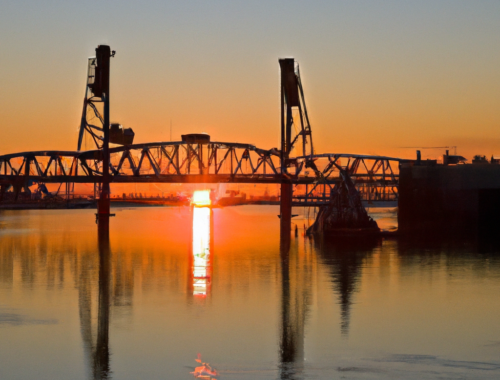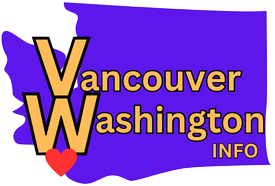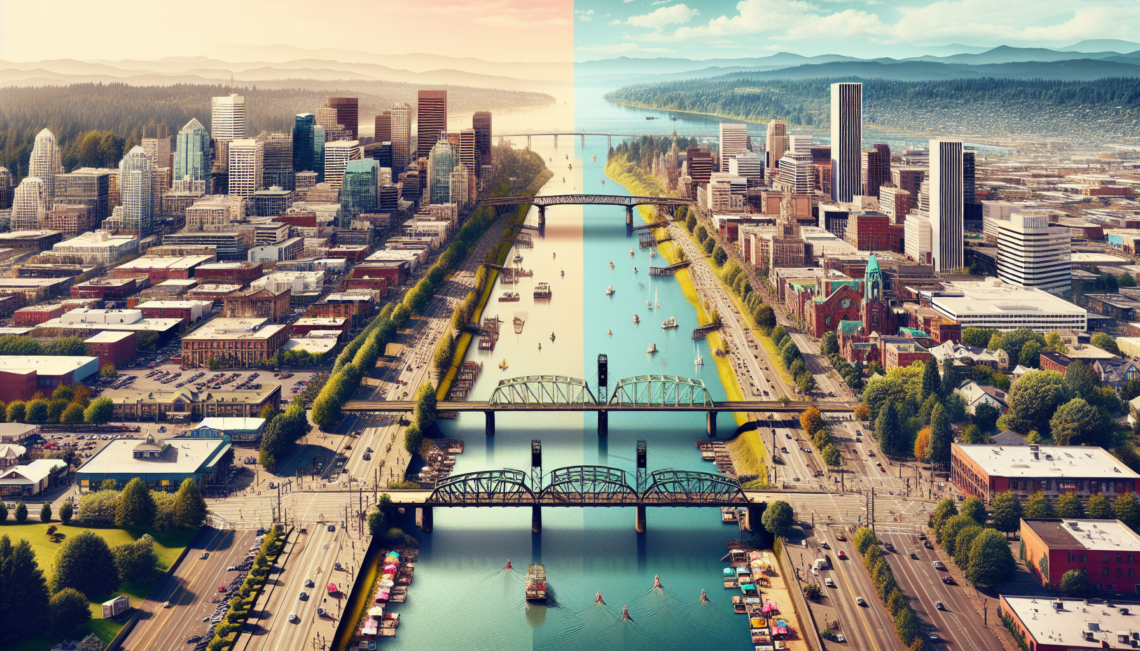
Is Vancouver WA a suburb of Portland?
In the Pacific Northwest, nestled near the stunning Columbia River, lies the captivating city of Vancouver WA. Many often wonder, is Vancouver WA merely an extension of its famous neighbor, Portland? This article explores the connection between these two cities, delving into their shared history, geographical proximity, and the unique attributes that make Vancouver WA stand out, ultimately uncovering the true essence of this intriguing place.
Table of Contents
ToggleGeography and Location
Geographical Position
Located in the southwestern corner of Washington state, Vancouver is situated on the banks of the Columbia River. Its picturesque setting includes stunning views of the Cascade Mountain Range to the east and the vast expanse of the Pacific Ocean to the west. The city’s latitude and longitude coordinates are 45.6387° N and 122.6615° W, respectively.
Distance from Portland
Vancouver lies just across the Columbia River from Portland, Oregon’s largest city. The two cities are closely linked geographically, with Vancouver being just a short distance away. The driving distance between the downtown areas of Vancouver and Portland is approximately ten miles, which translates to a commute of around 20 minutes.
Shared Border
The Columbia River serves as the natural boundary between Vancouver and Portland. This shared border creates a strong sense of connection and cooperation between the two cities, enabling seamless travel and facilitating economic and cultural exchanges.
Physical Separation
Despite their close proximity, Vancouver and Portland are separate cities, each with their own unique characteristics and municipal governments. While this physical separation exists, it does not detract from the close relationship and interdependence that has developed between the two communities over the years.
Historical Background
Early Settlement
Vancouver’s history traces back to the early 19th century when it was established as a fur trading post by the Hudson’s Bay Company. The area was also home to several Native American tribes who had long inhabited the region. The growth of Vancouver as a settlement parallels the development of Portland, with both cities playing key roles in the expansion of the Pacific Northwest.
Separate Incorporation
Incorporated as a separate city in 1857, Vancouver became its own municipality with its own governance structure. This move solidified Vancouver’s identity as an independent community, distinct from its neighboring city across the river.
Evolution of Relationship
Over time, Vancouver and Portland have seen their relationship evolve beyond that of mere neighbors. Through shared experiences, cultural influences, and collaborative efforts, the cities have grown into interconnected hubs, contributing to the mutual growth and prosperity of the region.
Shared Regional Identity
While Vancouver maintains its own unique identity, it also shares a strong regional identity with Portland. This shared identity is nurtured through joint celebrations, collaborations, and a sense of camaraderie among residents. Together, they form a vibrant and diverse community that embraces their collective heritage and strengths.
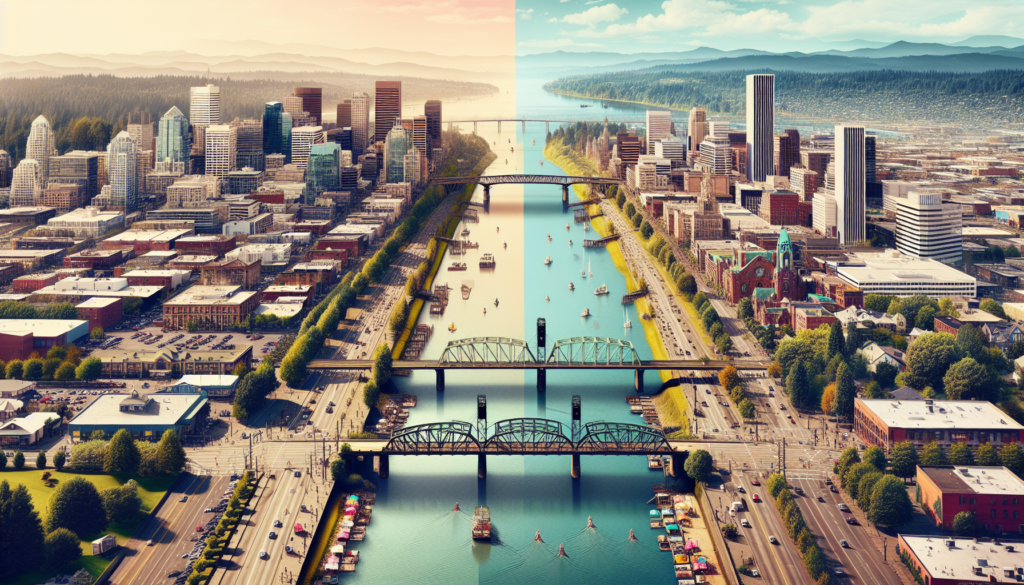
Transportation Connectivity
Interstate 5
Interstate 5, one of the major highways in the United States, serves as a vital transportation artery connecting Vancouver and Portland. This highway facilitates the movement of goods, services, and people between the two cities, allowing for efficient commuting and enhancing economic integration.
Highway 14
Highway 14, also known as the Lewis and Clark Highway, runs east-west through Vancouver and extends all the way to the interstate system. This highway plays a crucial role in connecting Vancouver with the rest of Washington state and serves as an alternate route to reach Portland.
Public Transport
Vancouver and Portland benefit from excellent public transportation systems that further foster connectivity between the two cities. C-TRAN, the local transit agency, operates bus services within Vancouver and offers multiple routes that link directly with Portland’s renowned TriMet system. This integrated public transport network enhances accessibility and encourages cross-border commuting.
Bridges Connecting Vancouver and Portland
The bridges spanning the Columbia River serve as vital links between Vancouver and Portland. The Interstate Bridge, which carries Interstate 5, connects the downtown areas of both cities. Additionally, the Glenn L. Jackson Memorial Bridge, also known as the I-205 Bridge, provides an alternative route for commuters, relieving congestion during peak hours.
Economic Interdependence
Employment
Vancouver and Portland enjoy a symbiotic relationship when it comes to employment. Many residents of Vancouver commute to Portland for work, thanks to the proximity of the two cities. Similarly, residents of Portland find employment opportunities in Vancouver, capitalizing on the economic growth and development happening across the river.
Housing
The housing markets of Vancouver and Portland are interconnected, with residents seeking homes on either side of the river based on cost, availability, and lifestyle preferences. Vancouver’s relatively lower housing prices compared to Portland make it an attractive choice for individuals and families looking for more affordable options in close proximity to a major city.
Retail and Services
Vancouver offers a range of retail and service sectors that cater to both local residents and visitors from Portland. The city boasts numerous shopping centers, restaurants, and entertainment venues, providing ample options for recreation and leisure. Similarly, residents of Vancouver frequently visit Portland for specialized services, distinctive shopping experiences, and cultural events not found in their own community.
Cross-Border Business
Cross-border business ventures and collaboration are abundant between Vancouver and Portland. Companies based in one city often expand their operations to the other, leveraging the advantages of the combined consumer base and regional market. This mutually beneficial economic interdependence fosters innovation, job creation, and sustained growth for both cities.
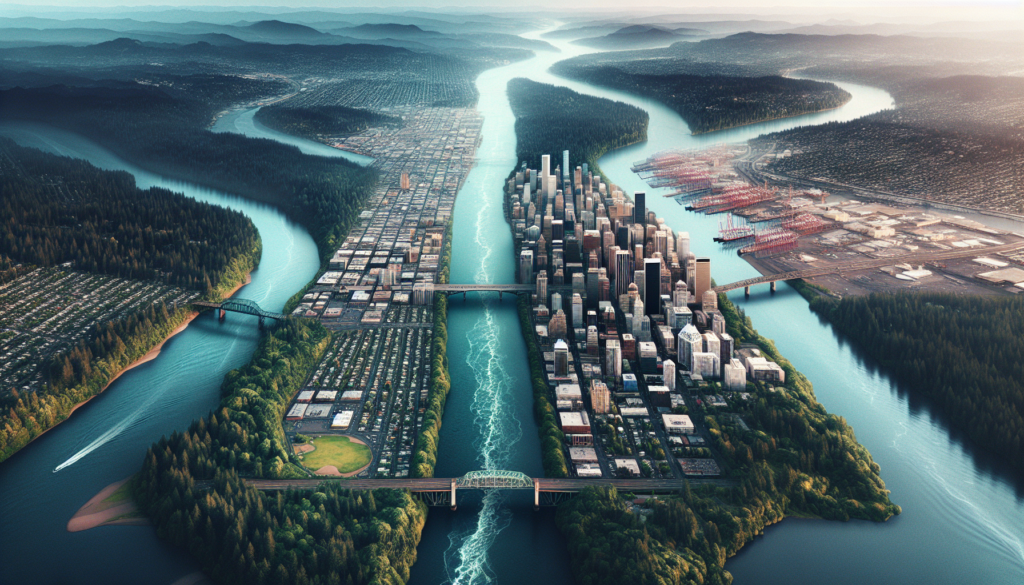
Population and Demographics
Growth and Urbanization
Vancouver has experienced significant population growth and urbanization in recent years. This trend can be largely attributed to the rising cost of living in Portland, prompting individuals and families to seek more affordable alternatives across the river. The influx of residents has led to the development of new neighborhoods, increased infrastructure investment, and the diversification of the local population.
Residential Patterns
Residential patterns in Vancouver vary, encompassing a mix of single-family homes, townhouses, and apartment complexes. The city offers an array of housing options to cater to different preferences and budgets, accommodating both established communities and newly developed areas.
Migration from Portland to Vancouver
Migration from Portland to Vancouver has been a significant factor in the growth of the latter. The allure of lower housing costs, combined with the accessibility and shared amenities, has attracted many individuals and families to make the move across the river. This migration has contributed to the cultural exchange, economic vitality, and overall vibrancy of Vancouver.
Cultural Diversity
Vancouver prides itself on its cultural diversity, with residents hailing from various backgrounds and ethnicities. The city’s proximity to Portland, which itself is known for its inclusivity and diversity, further enhances this multicultural tapestry. The intermingling of different cultures fosters a sense of community and brings richness to the social fabric of both cities.
Educational Institutions
Public Schools
Vancouver is home to a range of public schools offering quality education to students of all ages. The Vancouver Public Schools district strives to provide a nurturing and inclusive learning environment, preparing students for future success. The district works closely with Portland’s education system to share best practices, collaborate on programs, and offer joint educational opportunities.
Higher Education
Vancouver boasts several higher education institutions that cater to a diverse range of academic interests and career paths. Clark College, a well-regarded community college, offers affordable education and vocational training. Additionally, Washington State University Vancouver provides bachelor’s and master’s degree programs, attracting students from both Vancouver and Portland.
Collaboration with Portland Institutions
The educational institutions of Vancouver actively collaborate with their counterparts in Portland to enhance the overall educational experience for students. This collaboration includes student exchanges, joint research initiatives, and shared resources. The close proximity of the two cities enables seamless collaboration and provides students with a broader range of educational opportunities.
Educational Opportunities
Vancouver residents benefit from an abundance of educational opportunities, including workshops, seminars, and lifelong learning programs. The proximity to Portland allows residents easy access to the educational and cultural offerings of the larger metropolitan area, enhancing their overall personal and professional development.
Arts, Culture, and Recreation
Artistic Community
Vancouver boasts a thriving artistic community that contributes to the cultural vibrancy of the region. Local artists, musicians, and performers find inspiration in the natural beauty of the area and draw on the rich cultural heritage of the Pacific Northwest. The close proximity to Portland’s renowned arts scene further enriches the creative landscape, with opportunities for collaboration and exposure to diverse artistic expressions.
Cultural Events
The calendar in Vancouver is dotted with a variety of cultural events throughout the year, including festivals, concerts, and performances. These events showcase the talents of local and visiting artists, reflecting the multicultural fabric of the community. Residents of both Vancouver and Portland eagerly participate in these events, fostering a shared appreciation for the arts and strengthening the bond between the two cities.
Parks and Outdoor Activities
Vancouver’s natural surroundings provide ample opportunities for outdoor recreation. The city boasts numerous parks, trails, and scenic waterfront areas where residents can engage in activities such as hiking, biking, and picnicking. The proximity to Portland’s extensive park system, including iconic destinations like Forest Park, further expands the possibilities for outdoor enthusiasts on both sides of the river.
Entertainment Venues
Vancouver offers a range of entertainment venues, including theaters, concert halls, and event spaces. These venues host a diverse array of performances, providing cultural enrichment for residents and attracting visitors from Portland and beyond. The close proximity between Vancouver and Portland ensures a steady flow of world-class performances and entertainment options that cater to a wide range of interests.
Shared Challenges
Traffic Congestion
As two growing cities with interconnected transportation systems, both Vancouver and Portland face challenges related to traffic congestion. The reliance on major highways, such as Interstate 5, can lead to heavy traffic during peak hours. However, both cities are actively investing in solutions to alleviate congestion, including public transportation enhancements, infrastructure improvements, and smart city initiatives.
Housing Affordability
The issue of housing affordability affects Vancouver and Portland alike. Rising property prices and increased demand pose challenges for residents seeking affordable housing options. While Vancouver offers comparatively more affordable housing, the rapid growth and popularity of the area have put pressure on the market. Addressing these issues requires collaborative efforts between the two cities, as well as innovative policies and strategies to ensure housing remains accessible for all.
Infrastructure Development
With growing populations and expanding economies, both Vancouver and Portland must invest in infrastructure development to meet the needs of their residents. This includes upgrading roads, bridges, and public transportation systems to accommodate increased mobility and ensure a sustainable future. Coordinated planning and investment in shared infrastructure projects have the potential to enhance connectivity and improve the quality of life for residents on both sides of the river.
Sustainability Initiatives
Vancouver and Portland are renowned for their commitment to sustainability and environmental stewardship. Both cities have implemented initiatives to reduce carbon emissions, increase renewable energy usage, and promote eco-friendly practices. Sharing best practices and collaborating on regional sustainability goals enables Vancouver and Portland to tackle environmental challenges collectively, preserving the natural beauty of the Pacific Northwest for future generations.
Government and Governance
Separate Municipalities
Vancouver and Portland are distinct municipalities, each with their own local governments and administrative structures. While they share a common metropolitan area, this separation ensures that each city has the autonomy to address the unique needs and priorities of its residents.
Shared Regional Planning
Despite being separate entities, Vancouver and Portland engage in shared regional planning to promote coordinated development and growth. Through regional government agencies and partnerships, the cities work together to address common challenges, such as transportation infrastructure, land use, and environmental conservation. This collaborative approach allows for integrated planning and a more efficient allocation of resources.
Interlocal Cooperation
Interlocal cooperation plays a pivotal role in the relationship between Vancouver and Portland. Both cities recognize the benefits of collaboration and actively engage in cooperative efforts to address issues that transcend municipal boundaries. By working together on projects related to public safety, emergency response, and shared services, Vancouver and Portland create a stronger and more resilient region.
Jurisdictional Differences
While Vancouver and Portland enjoy a cooperative relationship, there are jurisdictional differences that arise due to separate municipal governments. Each city has its own set of regulations, land-use policies, and governance structures, which may occasionally lead to variations in decision-making. However, the commitment to collaboration and shared regional planning allows for effective coordination and the resolution of any jurisdictional disparities.
Local Identity and Perception
Vancouver as a Suburb
Vancouver is often regarded as a suburb of Portland due to its proximity and interconnectedness. While this perception has some basis in reality, it does not fully encompass the unique character and strengths of Vancouver as an independent municipality. Vancouver has emerged as a vibrant city in its own right, with a thriving economy, strong sense of community, and a rich cultural heritage that sets it apart from a traditional suburban area.
Vancouver’s Autonomy
It is important to recognize and respect Vancouver’s autonomy as a separate city. Vancouver has its own governance structure, local priorities, and distinct community identity. The city has thrived by fostering its own economic development, investing in infrastructure, and cultivating a vibrant cultural scene. Acknowledging and appreciating Vancouver’s autonomy allows for a more comprehensive understanding of the region as a whole.
Perception from Portland
From a Portland perspective, Vancouver is often seen as a convenient extension of the metropolitan area. The proximity of Vancouver provides access to more affordable housing options, cultural amenities, and recreational opportunities. Portland residents also appreciate the collaborative efforts between the two cities and recognize Vancouver as an important contributor to the overall vitality of the region.
Perception from Vancouver
For residents of Vancouver, the close relationship with Portland is a source of pride and an integral part of their identity. Vancouver residents value the economic opportunities, cultural exchanges, and shared resources that come with their close proximity to a major city. While Vancouver maintains its unique character and independent local governance, the interconnectedness with Portland enriches the lives of its residents, fostering a sense of belonging and mutual respect.
In conclusion, Vancouver, Washington, is not simply a suburb of Portland, Oregon. While the cities share a border and a strong interdependence, Vancouver has developed its own unique identity over time. The geographical proximity, shared amenities, and collaborative efforts enhance the lives of residents on both sides of the river. Vancouver’s growth, economic vitality, and cultural diversity make it a thriving city in its own right, contributing to the vibrant fabric of the Pacific Northwest.
You May Also Like
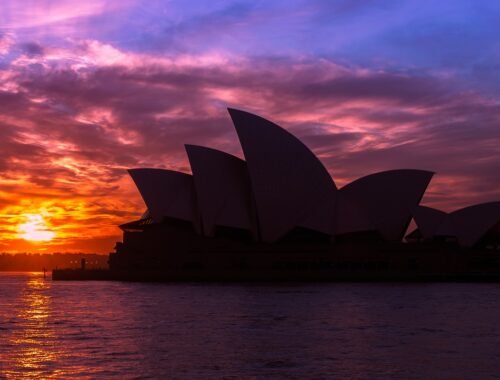
Exploring the Best of Portland and Seattle
12 January 2024
Comparing the Cost of Living in Seattle and Oregon
13 January 2024